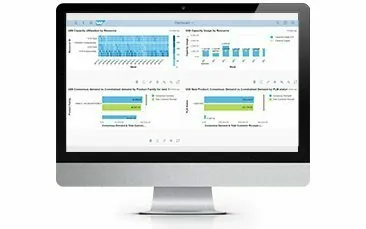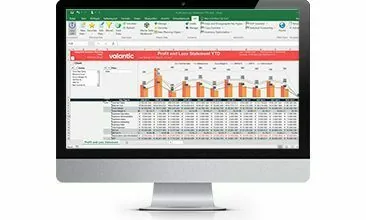The process of Sales, Inventory & Operations Planning (SI&OP) distinguishes itself through the interplay of many specialized departments and interest groups, which are not always in one location. Of course this increases the work required for communication and agreement. In addition, many companies struggle with information and data breakdowns in their organizations and system architectures. This is frequently also the reason for a flawed SI&OP process with which nobody – not sales, the suppliers, planning or production – is satisfied. These problems result in increased material inventories, customer satisfaction, and in the end, lower product margins.
The possibilities of the digital transformation
With the new possibilities of the digital transformation, improvements and efficiency increases can be achieved in this complex processes. Precisely when it comes to communication, data availability, reporting/monitoring, and computing capacity, there are innovative tools for fundamentally optimizing the SI&OP process. With an integrated system environment, the incorporation of all stakeholders and the support of artificial intelligence (interpretation of market developments), data is communicated and potential becomes visible.
Thanks to the use of state-of-the-art digitalization technologies, the organizations and processes can be attuned sensibly to one another, total costs minimized, customer service, and the satisfaction of all process participants and customers increased.



